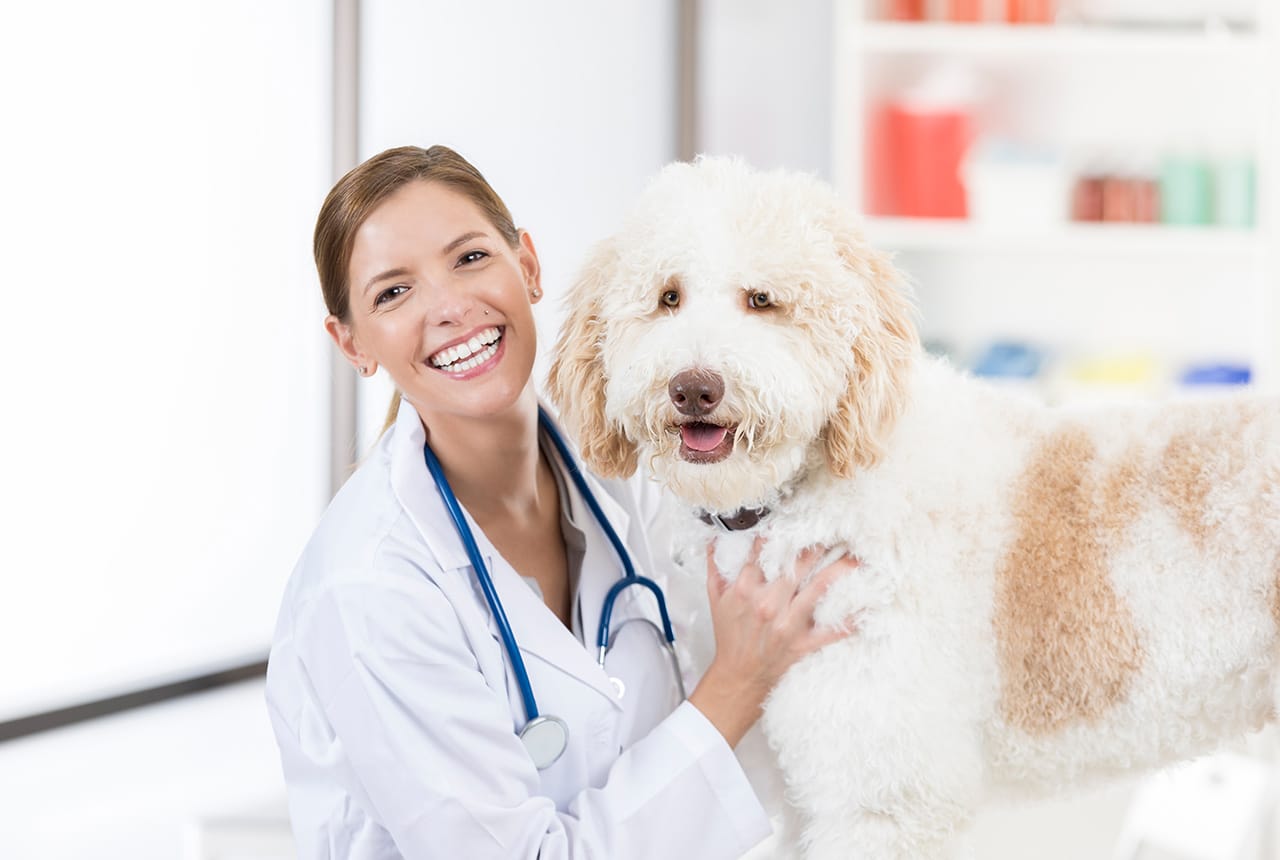Doodle Health

A veterinarian is your pet’s second-best friend. When selecting a veterinarian, you’re doing more than searching for a medical expert. You’re looking for someone to meet your needs and those of your pet, a doctor who has people as well as animal skills. The worst time to look for a vet is when you really need one, so plan ahead and choose wisely.
Veterinarians often work with a team of professionals, including technicians and qualified support staff, so you’ll likely want to evaluate the entire vet team’s competence and caring. You should also consider the hospital’s location and fees when making a decision. Driving a few extra miles or paying a bit more may be worth it to get the care you want for your pet.
How to Find the Right Veterinarian
The best way to find a good veterinarian is to ask people who have the same approach to pet care as you. Start with a recommendation from a friend, neighbor, animal shelter worker, dog trainer, groomer, boarding kennel employee or pet sitter.
Having Trouble Affording Veterinary Care? Consider these Options »
- Be proactive. Negotiate a payment plan with your vet. If you’re a client in good standing, she may be happy to work out a weekly or monthly payment plan so that you don’t have to pay the entire cost of veterinary care up front. However, don’t expect a vet you’ve never been to before to agree to such a plan; she doesn’t know you and understandably doesn’t want to get stuck with an unpaid bill.
- Offer to perform a service for your vet like cleaning kennels, answering phones or other work in lieu of actual cash.
- Get a second opinion. You’ll pay a consultation fee, but another vet may have other, less expensive ways to treat your pet.
- Use a vet in a less expensive area. Vets in smaller towns tend to charge lower fees.
- Check out local veterinary schools. Many run low-cost clinics for limited income clients. The American Veterinary Medical Association’s website and VeterinarySchools.com have lists of veterinary schools by state.
- Check out services provided by the local humane society.
Look in the Yellow Pages under “Veterinarians” and “Animal Hospitals,” where you can likely find important information about hours, services and staff. You can also search for veterinarians in your area online. Check for accreditation by the American Animal Hospital Association. AAHA accreditation means that a veterinary hospital has voluntarily pursued and met AAHA’s standards in the areas of facility, equipment and quality care.
If you’re looking for a specialist, ask about board certification. This means the vet has studied an additional two to four years in the specialty area and passed a rigorous exam.
Once you’ve narrowed your search, schedule a visit to meet the staff, tour the facility and learn about the hospital’s philosophy and policies. This is a reasonable request that any veterinarian should be glad to oblige. Write down your questions ahead of time.
What to Look for in a Veterinary Practice
- Is the facility clean, comfortable and well-organized?
- Are appointments required?
- How many veterinarians are in the practice?
- Are there technicians or other professional staff members?
- Are dog and cat cages in separate areas?
- Is the staff caring, calm, competent and courteous, and do they communicate effectively?
- Do the veterinarians have special interests such as geriatrics or behavior?
- Are X-rays, ultrasound, bloodwork, EKG, endoscopy and other diagnostics done in-house or referred to a specialist?
- Which emergency services are available?
- Is location and parking convenient?
- Do fees fit your budget, and are discounts for senior citizens or multi-pet households available?
How to Be a Good Client
Having good client manners encourages a happy relationship with your vet. See your vet regularly for preventive visits, not just when your pet becomes ill.
Learn what’s normal for your pet, so you recognize the first signs of illness. If a pet’s not well, don’t wait until she’s really sick before you call your vet. It’s frustrating for a vet, and heartbreaking to owners, to see an animal die of an illness that could have been treated successfully if professional care had begun sooner.
Schedule appointments and be on time. Lateness is rude and wreaks havoc with the office’s timing.
For your pet’s safety as well as that of other clients and pets, bring your dog to the veterinary office in a carrier or on leash.
Don’t disturb your veterinarian during non-working hours for matters that can wait, and don’t expect your veterinarian to diagnose a pet’s problem over the telephone.
Even if you have an emergency, call ahead to ensure that the veterinarian’s available. She will have to work your pet into the regular schedule, so be prepared to wait. If your pet can’t be seen that day, you will be referred to an emergency vet hospital.
What to Do When You Aren’t Happy with Your Veterinarian
If you feel that your veterinarian isn’t meeting your needs as a client or the needs of your pet as a patient, it may be time to find a new one. But sometimes simple misunderstandings cause conflicts, which you and your vet can resolve by talking things out and looking for solutions.
If you can’t resolve a fee or treatment dispute with your vet, you may contact the ethics and grievance committee of your local or state veterinary association and/or the American Veterinary Medical Association.
For serious issues of medical competence, you may file a formal complaint with the Veterinary Licensing Board in your state.
And finally, you can take up the matter as a civil suit with your attorney.
(Article from The Humane Society of the United States)




